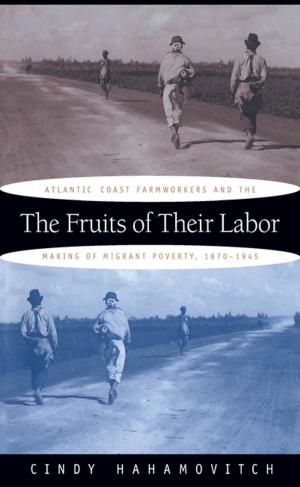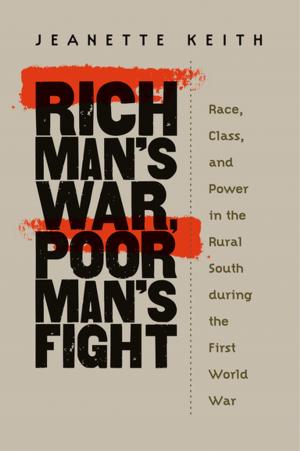Fugitives, Smugglers, and Thieves
Piracy and Personhood in American Literature
Nonfiction, History, Americas, United States, Colonial Period (1600-1775), Fiction & Literature, Literary Theory & Criticism, American, Social & Cultural Studies, Social Science, Cultural Studies, African-American Studies| Author: | Sharada Balachandran Orihuela | ISBN: | 9781469640938 |
| Publisher: | The University of North Carolina Press | Publication: | April 9, 2018 |
| Imprint: | The University of North Carolina Press | Language: | English |
| Author: | Sharada Balachandran Orihuela |
| ISBN: | 9781469640938 |
| Publisher: | The University of North Carolina Press |
| Publication: | April 9, 2018 |
| Imprint: | The University of North Carolina Press |
| Language: | English |
In this book, Sharada Balachandran Orihuela examines property ownership and its connections to citizenship, race and slavery, and piracy as seen through the lens of eighteenth- and nineteenth-century American literature. Balachandran Orihuela defines piracy expansively, from the familiar concept of nautical pirates and robbery in international waters to postrevolutionary counterfeiting, transnational slave escape, and the illegal trade of cotton across the Americas during the Civil War. Weaving together close readings of American, Chicano, and African American literature with political theory, the author shows that piracy, when represented through literature, has imagined more inclusive and democratic communities than were then possible in reality. The author shows that these subjects are not taking part in unlawful acts only for economic gain. Rather, Balachandran Orihuela argues that piracy might, surprisingly, have served as a public good, representing a form of transnational belonging that transcends membership in any one nation-state while also functioning as a surrogate to citizenship through the ownership of property. These transnational and transactional forms of social and economic life allow for a better understanding of the foundational importance of property ownership and its role in the creation of citizenship.
In this book, Sharada Balachandran Orihuela examines property ownership and its connections to citizenship, race and slavery, and piracy as seen through the lens of eighteenth- and nineteenth-century American literature. Balachandran Orihuela defines piracy expansively, from the familiar concept of nautical pirates and robbery in international waters to postrevolutionary counterfeiting, transnational slave escape, and the illegal trade of cotton across the Americas during the Civil War. Weaving together close readings of American, Chicano, and African American literature with political theory, the author shows that piracy, when represented through literature, has imagined more inclusive and democratic communities than were then possible in reality. The author shows that these subjects are not taking part in unlawful acts only for economic gain. Rather, Balachandran Orihuela argues that piracy might, surprisingly, have served as a public good, representing a form of transnational belonging that transcends membership in any one nation-state while also functioning as a surrogate to citizenship through the ownership of property. These transnational and transactional forms of social and economic life allow for a better understanding of the foundational importance of property ownership and its role in the creation of citizenship.















